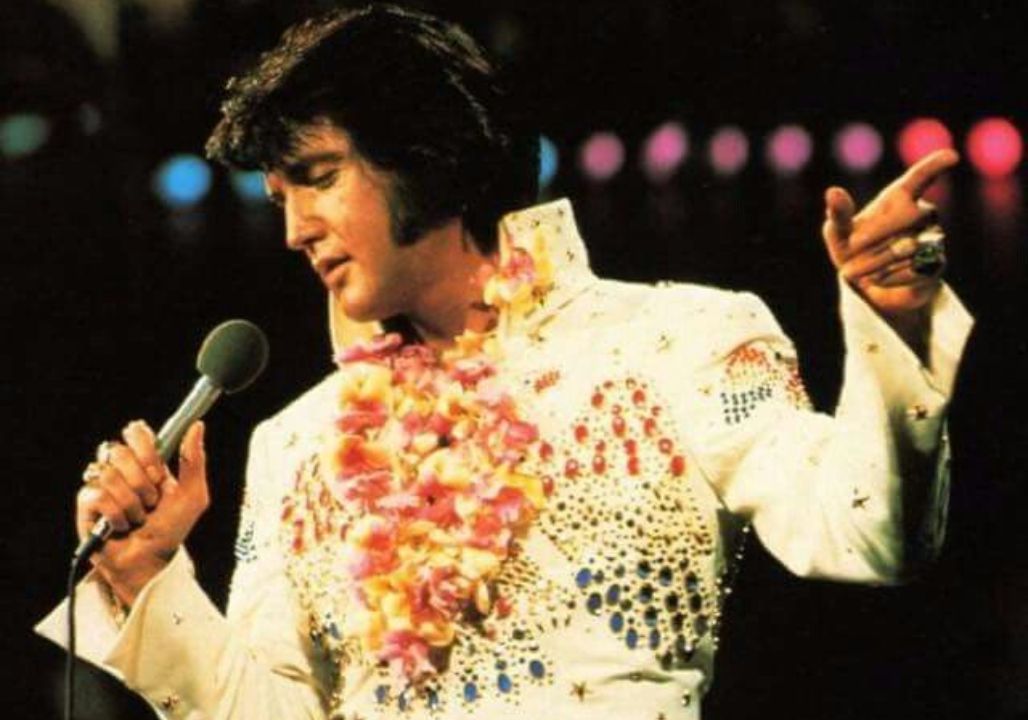
On the morning of August 16, 1977, the world was jolted by devastating news: Elvis Presley, crowned the King of Rock and Roll, had died tragically at the tender age of 42. Officially, his death was attributed to a heart attack, but for millions of devoted fans and cultural commentators alike, the real story held far more complexity and sorrow. Elvis’s heart was never simply an organ—it beat as the pulse of an entire generation, driving rock and roll into the limelight. The burning question that haunts history is: why did it stop so suddenly?
The night preceding his death unfolded like many others at Graceland, his grand Memphis mansion. Despite suffering from severe health issues—obesity, chronic fatigue, and an alarming growing addiction to prescription drugs—Elvis still flashed the charisma that had enshrined him as an icon. He engaged in a friendly game of racquetball with his cousin, shared laughter with friends, and even sat at the piano to deliver a haunting rendition of Blue Eyes Crying in the Rain. Unknown to all present, it would be the last song he would ever sing.
Later that night, Elvis retreated to his private quarters. Tormented by restlessness, he consumed a familiar cocktail of medications—a disturbing daily ritual that had come to define his twilight years. With a book in hand, he secluded himself in the bathroom. The following afternoon, his fiancée Ginger Alden found him unresponsive. Despite frantic attempts to revive him, by 3:30 p.m. the legend was lost—Elvis Presley was dead.
The official explanation—heart failure—was clear and concise on paper. However, dark whispers about the deeper causes soon emerged. Elvis’s notorious reliance on prescription drugs loomed like a shadow over the narrative. His longtime doctor, Dr. George Nichopoulos, had prescribed an overwhelming array of pills intended to ease his insomnia, pain, and relentless anxiety. Close friends within the infamous Memphis Mafia admitted they saw the destructive spiral of addiction but felt powerless to intervene. How does one say “no” to the King?
Yet, the perplexity of Elvis’s passing did not end with grim toxicology reports. Conspiracy theories flourished in the aftermath. Some insisted Elvis had faked his death to escape the unbearable burden of his fame. Others claimed he was secretly involved with criminal elements and vanished for his own safety. Rumors of sightings—from doughnut shops in Kalamazoo to mysterious Graceland groundskeepers—fueled the myth that Elvis was still alive, lurking in the shadows.
Beneath this swirl of spectacle and mystery lay a profoundly personal battle. Elvis grappled with a crushing addiction, the suffocating pressures of super-stardom, and the isolation inherent to his lofty position. His obsession with spiritualism and the occult added an enigmatic dimension as well; friends recalled his intense interest in reincarnation, astrology, and mystical philosophies. Was he, perhaps, desperately seeking answers to questions that haunted him until his final breath?
More than forty years have passed, yet Elvis Presley’s death remains one of the most enigmatic events in music history. His legacy, however, has only flourished. Graceland has become a global shrine, his timeless songs continue to captivate new generations, and his impact stretches far beyond the age he defined. Through the echo of his voice, his unmistakable style, and the countless legends woven around his last days, Elvis lives on—not merely as a man, but as a mythic figure embraced by millions who keep his spirit burning brightly almost five decades later.
